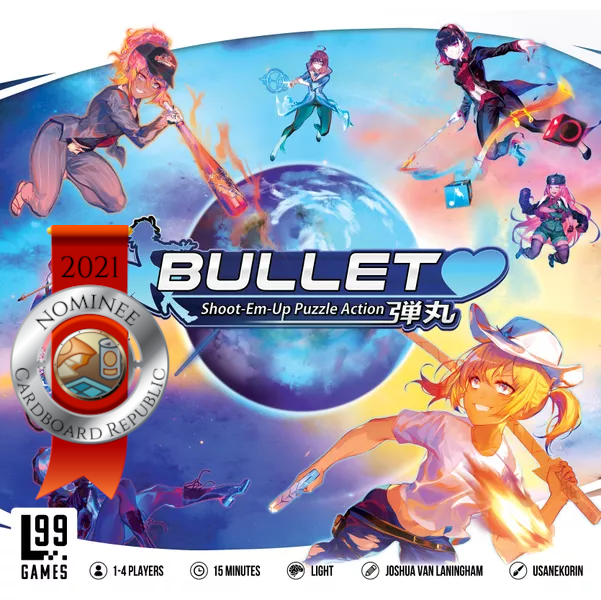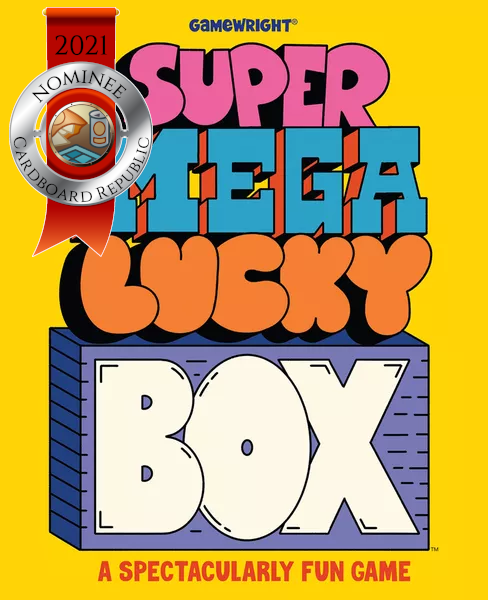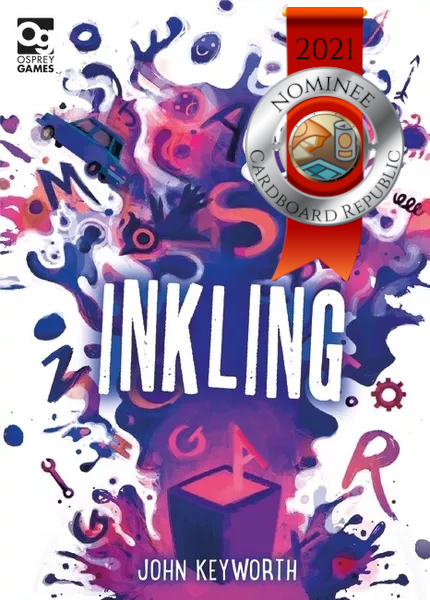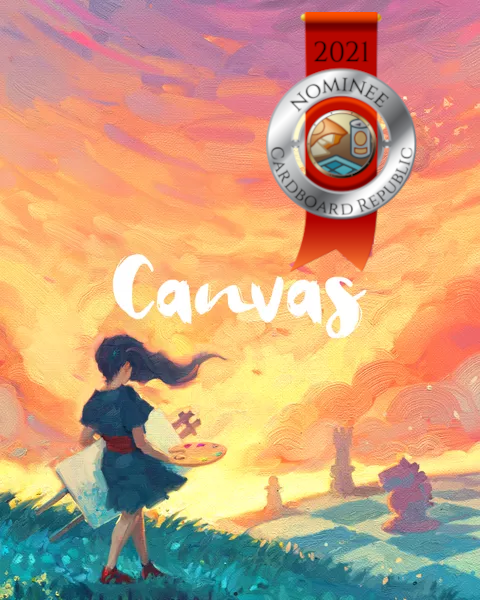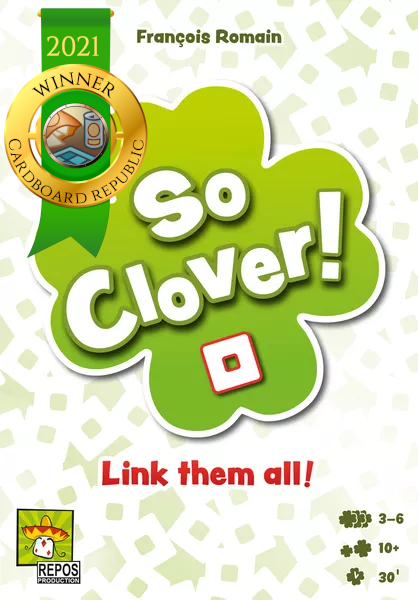The Cardboard Republic has rolled out the annual Laurels of the Republic awards, celebrating the best new games released in 2021 for each of the gamer archetypes. What follows are the finalists for one of those groups.
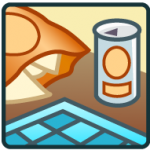 There are few things that Socializers want more out of games than a means to engage with other players as much as possible. If they were a clan, their credo would be ‘Light on Rules, Heavy on Interaction’. Games to this group are less about picking out intricate strategies or figuring out a way to win at any cost than they are about a means to collectively enjoy spending time with other people. As a result, this group prefers games that either have short and simple playthroughs or those that permit them the opportunity to, well, socialize with other players.
There are few things that Socializers want more out of games than a means to engage with other players as much as possible. If they were a clan, their credo would be ‘Light on Rules, Heavy on Interaction’. Games to this group are less about picking out intricate strategies or figuring out a way to win at any cost than they are about a means to collectively enjoy spending time with other people. As a result, this group prefers games that either have short and simple playthroughs or those that permit them the opportunity to, well, socialize with other players.
And with that, here are The 2021 Laurel Finalists for Socializers:
Honorable Mention: Crash Octopus
Publisher: itten | Players: 1-5 | Play Time: 20-30 Minutes
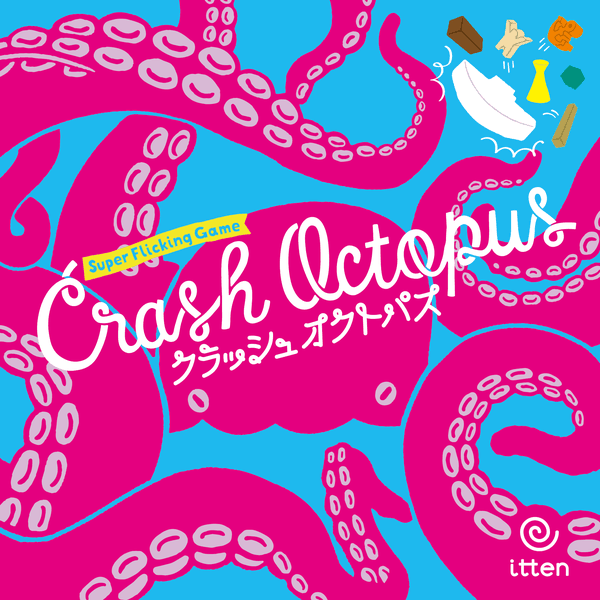
As a recreational social activity, board games come in all manner of size, appearance, complexity, and purpose. Some games exist as simulations of complex systems or enlightening re-enactments of past moments in time. Others exist to tell a captivating, engrossing story that draws you in to its narrative backdrop.
And then there are those which exist solely for the frivolity of it. Games which revel in not taking themselves too seriously and strenuously insist that you shouldn’t either. Their intent isn’t to convey some deeper meaning insomuch as to be observed. To be enjoyed reflexively. Not just to be played but to be played with.
Crash Octopus is ever so much in that last camp. And proudly so.
The latest wellspring conjuring from acclaimed Japanese designer Naotaka “Shima” Shimamoto’s itten studio, Crash Octopus outwardly looks like if someone dumped a random assortment of off-brand Lego pieces on the table and then made a game around them. Which is all completely and fantastically on purpose, as one of itten’s core philosophies often involves titles that intentionally blur the space between game, toy, and art piece. (e.g. Tokyo Highway.) Crash Octopus may be the most outward expression of those intentions to date, bringing with it a lightweight, frenetic, and delightfully absurd seabound escapade.
In this tailor-made-for-a-chanty dexterity game, players are crew members of rival cargo ships whose cargo (and captains) tumbled overboard due to the appearance of a massive octopus from below. The layout of each game varies significantly due to it using the table as the board and the fact that the various cargo pieces you’re tasked with rescuing are seeded by bouncing them off the octopus’s head while hoping they don’t go flying off the table in the process…and often failing in that respect.
The entire conceit to Crash Octopus involves players taking turns flicking their ship’s banner into objects that either let you move your ship around the choppy waters or attempt to stack desired flotsam back onto your boat. As more cargo is recovered, the more agitated Ol’ Eightlegs becomes, culminating in players bouncing dice off the octopus to see if creates additional havoc by thrashing about to alter your line of sight or potentially even losing previously-saved goods.
The goal in Crash Octopus, such as one exists, is to flick your way to recovering all 5 cargo pieces you need. But its true appeal – both generally and to Socializers specifically – is that this is a game more about embracing that frivolousness rather than striving to overcome it. Its uneven luck-laden chaos adopted rather than conquered. Crash Octopus makes a splash as a lightweight, silly game with a compelling table presence that doesn’t just ask you to lean into the social gaiety of its experience – it demands it. But you’re well rewarded for doing so.
The Nominees
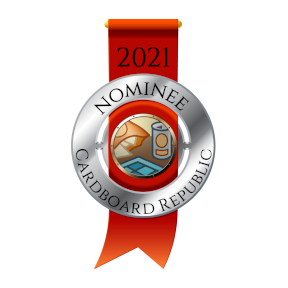
Number Five: Bullet♥︎
Publisher: Level 99 Games | Players: 1-4 | Play Time: 15-20 Minutes
Even if you’ve never dove into the world of video games, chances are you’ve heard of Space Invaders. This classic and now iconic arcade game was unveiled to the world in 1978, becoming an instant mega-hit among fans and ushered in a brand new genre of video gaming that’s now referred to as the shoot ‘em up – shmup for short. This in time branched into divergent styles such as side scrollers and rail shooters, each gaining acclaim in their own right. One of these spinoffs, particularly popular among Japanese designers and fans, is known as “bullet hell”, a particularly electric but brutal shooter style where the bulk of screen is comprised of projectiles you’re trying to outrun, dodge, or destroy as long as possible.
Which for many of us was never terribly long.
Bullet, from Level 99 Games, is an homage to such titles, immersing players into a scaled down analog adaptation replete with the company’s trademark anime-influenced visual aesthetics and a countdown clock to ensure each round captures as much of the increasingly frenzied mania endemic to the source material as possible without the need of a control pad.
In Bullet, each player is a member of a futuristic all-female fighting crew trying to save Earth from an existential threat – as well as each other. The game’s characters all come with a slate of unique abilities, but the overarching flow remains the same: do whatever it takes to survive. In recurring rounds of just a scant couple minutes, you must draw and place a series of tokens of varying colors and values into your central grid – your incoming fire. Of course, it wouldn’t be a bullet game if things didn’t get dramatically worse for you the longer you endure: the number of tokens you must place increase both the more rounds you survive as well as the more successful the player next to you is at doing the same. Aiding you in this cosmic quest are special actions which allow you to move and manipulate those bullets, as well as remove them from your grid in certain patterns. If you ever are unable to place one, you take damage. Take too many hits, and your gunslinging days are over.
Bullet may seem like a slight oddity for a favorite among the Socializer group, given that your chief focus attention resides on your own board while being barraged by both incoming fire and a limited time window. Yet in retrospect, that Bullet’s spirited antics shot it up into the running shouldn’t have come as a surprise. Thanks to its playfully hectic atmosphere befitting fans of positive interactive experiences – particularly among the game’s team-based competitions and blistering fully cooperative boss battle mode – a surprisingly succinct set of rules, ample inter-round banter, and good-natured ribbing when your successes compound another’s continued mortality, Bullet is not just a bastion of multiplayer solitaire. It’s short, memorable, and highly replayable – all of which understandably made Bullet an explosive success.
Number Four: Super Mega Lucky Box
Publisher: Gamewright Games | Players: 1-6 | Play Time: 20-30 Minutes
Of all the games on this list, Super Mega Lucky Box had the most bifurcated response, and it doesn’t take much to understand why. For if you brush the curtain aside what lay before you is essentially a gamified flip-and-write version of Bingo. And people had Opinions on that fact. From our vantage, however, that reality doesn’t discount from its intrinsic affability.
Despite almost gleeful jibes by some towards anything reminiscent of ‘traditional’ games as pallid and beneath the chic sensibilities of today’s hobby gamer, what almost always gets lost in such reactions is why said game has endured in the first place. Care for it or not, Bingo has entertained thousands for a century – with a genesis dating back to the Italian Renaissance no less. Try as one might to disparage its lottery-esque experience as solely the pastime of retirees and church ladies, its contribution to the grand annals of tabletop history as a simple yet socially approachable and engaging affair cannot be overstated.
Which makes what designer Phil Walker-Harding did all the more praiseworthy.
Building on an ethos of creating games around accessibility and social engagement, Super Mega Lucky Box is Phil’s latest addition to a growing CV of games (e.g. Sushi Go!, Imhotep, Barenpark, etc.) laser-focused on that mission.
In this game, each player has a handful of 3×3 numbered cards ranging in value from 1 to 9, with the intent of crossing off as many numbers as possible over four rounds of nine turns each. Turns are taken simultaneously by flipping over the top card of the deck, revealing a number, and then crossing out a matching number on one of your cards. Your primary goal is to complete as many cards as possible.
Yet what makes SMLB particularly crafty and gratifying is the way it takes an established blueprint and adds an important feature – agency – via minor cascade effects, all while not detracting from its inherent social appeal. Completing card rows and columns provide rewards that allow you to cross out additional numbers, manipulate the value of revealed cards, and additional scoring opportunities. This keeps you engaged with each flip of the deck while remaining cheerfully unencumbered.
With a vibrant, playful aesthetic straight out of a lost School House Rock video and a leisurely pacing full of incremental decision-making moments, Super Mega Lucky Box promotes conversation while still conferring a simple, straightforward purpose – all while imbued with a quality that feels refreshing yet timeless. To Socializers, there is no better purpose for a game than creating a positive shared experience with others. To accomplish that is something super mega lucky indeed.
Number Three: Inkling
Publisher: Osprey Games | Players: 3-6 | Play Time: 15-30 Minutes
Stating that interpretive party games are not for everyone is far from a risky assessment. While they have their adherents, many are reticent to dive into games that put them in a hotseat or where their scoring potential relies on some kind of demonstrable skill. To many, such games are more stress than succor.
Inkling, a short and straightforward card game from early 2021, alleviates this by distilling the interpretative model down to the bare essence of its appeal: leaving in the lively guesswork while stripping out the anxiety. Mostly. All in about 20ish minutes.
As with many games of whimsical interpretation, the crux to Inkling is conveying concrete information with insufficient resources. In Inkling every player is given a single card containing six words of increasing complexity. Your goal is to try to get the players on each side of you to correctly deduce as many of those six words as possible over a scant three rounds by trying to spell them in front of you.
The biggest impediment to your endeavors, however, is also what lay at the heart of Inkling’s creative challenge: its letter cards. You’re only provided a handful of random letter cards to start each game, and while you will gain and/or cycle out a few additional cards in both subsequent rounds, the total amount you have to work with – regardless of which letters you’re given or the words you’re trying to communicate – are finite. Success therefore relies on being inventive.
Auspiciously, Inkling’s LCD-style typeface segments its letter up, permitting you to use portions of one letter to potentially create another. Cards can be rotated, covered, flipped, set aside, made into a pyramid (not sure how it’d help but go for it) – whatever you feel will help your chances.
When both of those features inevitably converge at the game’s end, the immediate reaction isn’t whether someone won or lost but the overpowering need to want to discuss your efforts. What a player was trying to say. How they went about trying to say it with limited options. Why they took one approach over another. It successfully gets players talking, which is the intrinsic predilection of any party game.
Inkling in many ways is an unconventional case of delayed socialization, making the endgame debriefs as much a part of its allure as the card manipulating motions themselves. For Socializers, this is doubly true. Yet the approach works, and surprisingly well at that, thanks to its minimal ruleset, brisk pacing, and a low-stakes premise that’s as inviting as it is quizzical.
But you don’t have to just take our word for it.
Number Two: Canvas
Publisher: Road To Infamy Games | Players: 1-5 | Play Time: 30 Minutes
There are innumerable examples of games bursting onto the gaming scene and making an immediate impact due to their mechanical innovation or ingenuity. Nearly as many have garnered praise and attention for its proficiencies in immersing players in a particular theme. Periodically, a game comes along that does both.
In the dawning days of 2005, one such instance was the card game Gloom. Fueled by an oddly enticing blend of macabre yet irreverent dark humor, your goal in Gloom is to make your troupe of family members as unhappy as possible and then kill them off. (It’s like reading A Series of Unfortunate Events and deciding those tales were too upbeat.) This was conveyed through the groundbreaking idea of transparent modifier cards with printed icons which could either compliment or override values beneath them when played atop one another.
In 2021, Canvas brought its own approach to this underserved mechanism while notably deviating from its spiritual ancestor in nearly every other way. Put quite plainly, Canvas is the anti-Gloom. Here your goal is to create rather than destroy. Antagonism replaced with friendly competition. In Canvas, you are trying to beautify a pasture rather than put someone out to it.
In this relaxed lightweight setting, each player is an artist looking to complete a trio of unfinished paintings in need of your inspiration. Players take turns either drafting an artwork card from a conveyor-belt style pool, or, once you have at least three, combing and “painting” them into one of your canvases, completing a masterpiece. In addition to an appreciably whimsical sliver of artwork, these cards contain icons of different shapes and colors which are used to score points via upwards of 4 randomized categories by meeting flavorful technical criteria.
Above all, Canvas is a masterstroke of majestic, casual gameplay. With a strikingly pleasant tone, leisurely pacing, and a basic ruleset, Canvas uses its own low-pressure landscape to evoke a clean sense of purpose without succumbing to the torpor of complex rules…or artistic burden. Cultivating the creation of otherworldly Dixit-style artworks which serve as much as conversation pieces as they do for their scoring potential, Canvas effortlessly offers both form and function. That capacity to spearhead conversation while maintaining worthwhile gameplay is not lost on Socializers one bit. This emergent form of player interaction – moving the focal point beyond the confines of the game’s canvases and to the interpersonal – brings with it a particular artistry all its own.
Canvas made this year’s shortlist early on, which is commendable. However, as luck would have it there was another title in 2021 that ultimately claimed the top spot…
The Winner
2021 Socializer Laurel – So Clover!
Publisher: Repos Production / Asmodee North America | Players: 3-6 | Play Time: 20-30 Minutes
Look, we get the instinctual reaction: just how much variation can a word-based socially-focused game be? It’s been done ad nauseum over decades, the logic goes, so how much does someone – let alone the industry – actually need a new contribution to this hale and hearty part of the hobby? Haven’t we seen it all before?
Turns out it’s a pretty deep well.
Such a reaction to So Clover! Is understandable. But as it’s delightfully droll pun of a name alludes to, there’s still ample room for new trips down long-established roads. (See also every worker placement, 18XX, or game about farming ever to know that even small variations can create laudable new experiences to well-trodden frameworks.) And in this case, we’re all the better off for it.
Releasing somewhat quietly in mid 2021 by Repos Production, word of mouth quickly spread about this happy-go-lucky title that’s every bit as refreshing as it is familiar. In this quick and concise exercise of careful word association, So Clover! is a cooperative venture played out over a single round. First, each player takes 4 square cards that you randomly slot on your clover-shaped board, with each side depicting a single word, creating four sets of word pairs. Players then individually write down a one-word clue linking them together – which as you may expect can be easier said than done. Once finished, the cards are moved and shuffled along with a decoy. Finally, everyone takes a turn amusingly – or agonizingly – sitting in silence as the rest of the table attempts to reassemble your arrangement based solely off your hints. Clues therefore must be effective in guiding your teammates without being obtuse enough to stump them or generic enough to create too many possible choices.
Or, you know, just wing it. That happens too.
Above all, both the appeal and simple elegance of So Clover! is tied to the twofold way it creates such a brisk but lively experience: nervously waiting to see if other players can follow one another’s personalized logic while creating a neigh-irresistible desire to discuss that logic after your turn’s short but entirely superfluous scoring takes pace. The game starts off preventing you from interacting with each other before pivoting immediately into making you want to do nothing else.
With a team-based approach centered around conviviality and a low stakes, low anxiety process with plenty of potential for great craic, So Clover! has the same shared embodiment of so many great party games: inviting, concise, interactive, and tremendously replayable. Contrary to popular thought, cultivating so much with so little is the exception rather than the rule. The good ones just make it look easy.
Any game capable of that is quite clover indeed. All of which makes it no stroke of luck as to why it has earned this archetype’s top spot for 2021.
![]()
So Clover Contest!
We thought about different ways to celebrate the winner of this year’s Socializer Laurel, including seeing who could pick the most 4-leaf clovers out of a fallow field at a breakneck pace, or some kind of ring toss style competition using the game’s notable square-holed cards. However, for a variety of reasons, neither really worked out. For one, our intern Claudius still has an injunction against him from a troupe of local carnies and really didn’t want to cross them at the moment with some sort of guerilla style setup. And the Irish government thought such a use of shamrocks wasn’t worth the logistical hassle of shuttling a bunch of people over to Dublin for a 30 minute exercise of what they called “a silly waste of time and money.” Our lower budget backup was to involve a park in the city of Boston, but they hung up on us. Again. (But that’s kind of normal for Boston to be honest.)
In the end we opted for the most direct approach: providing one lucky winner with the opportunity to enjoy the award-winning game first hand. So that is what we’re going to to do right…now.
That’s right! Enter below for your chance at your very own copy of So Clover!
In honor of their award recognition, Asmodee has kindly provided a copy of this game for giveaway purposes.
![]()
Be sure to check out the 2021 Laurel Award pages for the other archetypes once they go live!

